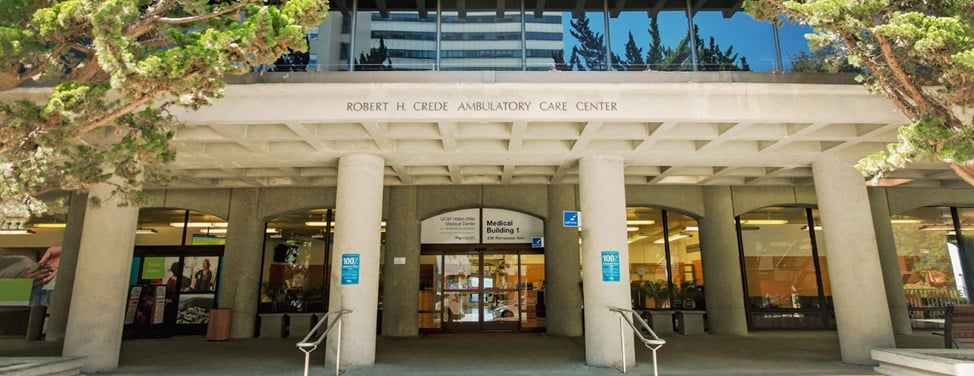
FAQ: Prednisone
- Why is this medication being recommended?
- What special precautions should I follow?
- What side effects can this medication cause?
- What monitoring will I need?
Why is this medication being recommended?
Prednisone is part of a class of drugs called immunosuppressants. It suppresses the body's immune response and reduces inflammation in your lungs. Because inflammation is the precursor to fibrosis (scarring), we hope prednisone will prevent the formation of lung fibrosis and allow the inflamed lung to return to normal.
What special precautions should I follow?
Before taking prednisone:
- Tell your doctor and pharmacist if you are allergic to prednisone, other medications or any of the inactive ingredients in prednisone tablets or solutions. Ask your doctor or pharmacist for a list of the inactive ingredients.
- Tell your doctor and pharmacist what prescription and nonprescription medications, vitamins and nutritional supplements you are taking or plan to take. Be sure to mention any of the following:
- Amiodarone (Cordarone, Pacerone)
- Anticoagulants ('blood thinners') such as warfarin (Coumadin)
- Certain antifungals such as fluconazole (Diflucan), itraconazole (Sporanox), ketoconazole (Nizoral) and voriconazole (Vfend)
- Aprepitant (Emend)
- Aspirin
- Carbamazepine (Carbatrol, Epitol, Tegretol)
- Cimetidine (Tagamet)
- Clarithromycin (Biaxin, in Prevpak)
- Cyclosporine (Neoral, Sandimmune)
- Delavirdine (Rescriptor)
- Diltiazem (Cardizem, Dilacor, Tiazac, others)
- Dexamethasone (Decadron, Dexpak)
- Diuretics ('water pills')
- Efavirenz (Sustiva)
- Fluoxetine (Prozac, Sarafem)
- Fluvoxamine (Luvox)
- Griseofulvin (Fulvicin, Grifulvin, Gris-PEG)
- HIV protease inhibitors including atazanavir (Reyataz), indinavir (Crixivan), lopinavir (in Kaletra), nelfinavir (Viracept), ritonavir (Norvir, in Kaletra), and saquinavir (Fortovase, Invirase)
- Hormonal contraceptives (birth control pills, patches, rings, implants and injections)
- Lovastatin (Altocor, Mevacor)
- Diabetes medications
- Nefazodone
- Nevirapine (Viramune)
- Phenobarbital
- Phenytoin (Dilantin, Phenytek)
- Rifabutin (Mycobutin), rifampin (Rifadin, Rimactane, in Rifamate)
- Sertraline (Zoloft)
- Troleandomycin (TAO)
- Verapamil (Calan, Covera, Isoptin, Verelan)
- Zafirlukast (Accolate)
- Tell your doctor what herbal products you take or plan to take, especially St. John's wort.
- Tell your doctor if you have:
- An eye infection now or have ever had eye infections that come and go
- Diabetes
- Emotional problems
- Heart disease
- High blood pressure
- Intestinal disease
- Kidney disease
- Liver disease
- Mental illness
- Myasthenia gravis, a condition in which the muscles become weak
- Osteoporosis, a condition in which the bones become weak and fragile and can break easily
- Seizures
- Threadworms – a type of worm that can live inside the body – currently or in the past
- Thyroid disease
- Tuberculosis (TB)
- Ulcers
- Tell your doctor if you are pregnant, plan to become pregnant or are breast-feeding. If you become pregnant while taking prednisone, call your doctor.
- If you are having surgery, including dental surgery, or need emergency medical treatment, tell the doctor, dentist or medical staff that you are taking or have recently stopped taking prednisone. You should carry a card or wear a bracelet with this information in case you are unable to speak in a medical emergency.
- Prednisone may decrease your ability to fight infection and can prevent you from developing symptoms if you get an infection. Stay away from people who are sick and wash your hands often while you are taking this medication. Be sure to avoid people who have chicken pox or measles. Call your doctor immediately if you think you may have been around someone who had chicken pox or measles.
- Acne
- Bulging eyes
- Changes in personality
- Changes in the way fat is distributed on the body
- Decreased sexual desire
- Difficulty falling asleep or staying asleep
- Dizziness
- Extreme changes in mood
- Extreme tiredness
- Headache
- Heartburn
- Inappropriate happiness
- Increased hair growth
- Increased sweating
- Irregular or absent menstrual periods
- Red or purple blotches or lines under the skin
- Slowed healing of cuts and bruises
- Thin, fragile skin
- Weak muscles
- Confusion
- Depression
- Difficulty breathing or swallowing
- Dry, hacking cough
- Eye pain, redness or tearing
- Hives
- Irregular heartbeat
- Itching
- Lightheadedness
- Loss of contact with reality
- Muscle twitching or tightening
- Numbness, burning, or tingling in the face, arms, legs, feet or hands
- Rash
- Seizures
- Shaking of the hands that you cannot control
- Shortness of breath, especially during the night
- Sore throat, fever, chills, cough or other signs of infection
- Swelling of the eyes, face, lips, tongue, throat, arms, hands, feet, ankles or lower legs
- Swelling or pain in the stomach
- Upset stomach
- Vision problems
- Vomiting
What side effects can this medication cause?
Prednisone may cause side effects. Tell your doctor if any of these symptoms are severe or do not go away:
Some side effects can be serious. If you experience any of the following symptoms, call your doctor immediately:
Prednisone may increase the risk that you will develop osteoporosis. Talk to your doctor about the risks of taking prednisone and about things that you can do to decrease the chance that you will develop osteoporosis.
Prednisone may cause other side effects. Call your doctor if you have any unusual problems while you are taking this medication.
What monitoring will I need?
Your doctor will order regular lab tests to check your response to prednisone and monitor for toxicity. You will need to have your blood sugar checked regularly. Your doctor may order additional tests depending on the results.
For additional information on prednisone, please visit MedlinePlus.gov.
UCSF Health medical specialists have reviewed this information. It is for educational purposes only and is not intended to replace the advice of your doctor or other health care provider. We encourage you to discuss any questions or concerns you may have with your provider.















